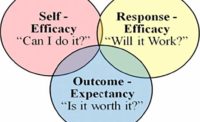After listening to Rich's explanation, it made sense why he would want a license to sell real estate along with his CIH. But how far can an industrial hygienist go into other career directions and still maintain the passion for improving quality of life and the technical competency that I believe are the roots of this profession?
Losing touch: For instance, I know an IH who worked for a large corporation, became interested in the stock market and has now worked as a stock broker for more than a dozen years. I believe his IH roots died long ago.
What about the owners of IH consulting firms? Many of them started out doing all the IH work. But now they run larger businesses, and their time and thoughts are mostly consumed by marketing, profits, taxes, and the like.
The same may hold true for an IH in the corporate world who goes from being a technician to a senior manager. Now the issues are budgets, personnel administration, and corporate concerns that are scarcely related to traditional industrial hygiene.
My own daily routine does not involve much traditional IH work anymore, such as exposure monitoring. I'm challenged by my employer to evaluate and offer solutions to prevent and control all risks to the corporation. Many of these may be far removed from what might be considered IH work. I don't object to this challenge. In fact, I strongly support and encourage it.
Crossing over: It's no secret that most IHs are diversifying. Their roots are spreading out more than going deep. Here are some of the newer crossover roles:
- Quality assurance auditing, such as ISO certifications.
- "Environmental historians" who trace how property became polluted. I can also envision an IH recreating an employee's exposure history by pouring over data.
- Preventing and controlling problems such as job stress.
- I've talked to several IHs who are thinking of becoming human resource managers.
- Corporate training most IHs have been honing their training skills due to OSHA regs for years.
Is this professional growth coming at the expense of traditional industrial hygiene core competencies? I think many of the basic skills remain essential regardless of career direction. Science, math, and engineering knowledge will always be important. So will good people and communication skills. No one argues these points. General business training, including finance and accounting, are helpful, if not imperative, as one climbs a career ladder.
There are also core values at stake, acquired not in classrooms but from mentors and peers. Of all the people I know, industrial hygienists most typify ethics, dedication, and a true compassion for our fellow man and a desire to improve the quality of life for everyone. Perhaps this is why I'm proud to be known as an industrial hygienist.
But our identity is being redefined as we grow as professionals. Eventually, the title of "industrial hygienist" might fade away. Right now I still call myself an industrial hygienist. But I'm troubled with this thought: Am I a "real" IH? After all, I'm not practicing traditional IH like I was ten years ago.
In the future, how will we define who is a professional and what work is necessary to maintain certification? This debate is crucial to the future health of the IH profession, and your voice should be heard.
